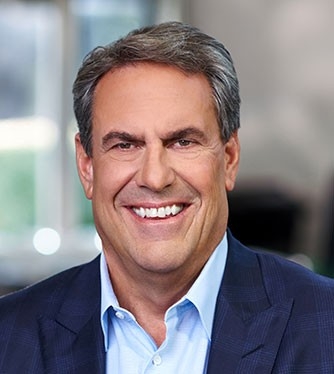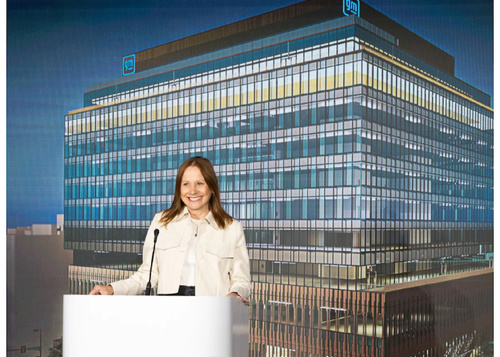The writer, a Los Angeles freelancer and former Detroit News business reporter, writes a blog, Starkman Approved.
By Eric Starkman
Some companies still understand the symbolic and strategic value of a headquarters. Walmart poured billions into a sprawling new campus in Bentonville, Arkansas, meant to showcase the retailer’s power and anchor its community presence. Apple turned its Cupertino headquarters into a $5 billion “spaceship” monument to design and technology.
Even relatively staid JPMorgan has spent more than $3 billion on a soaring new tower in midtown Manhattan to trumpet its dominance. To these companies, a headquarters isn’t just office space — it’s a statement of pride, corporate identity, and permanence.
The same holds true for Ford, which has invested billions redesigning and upgrading its Dearborn-area facilities into a 700-acre complex of laboratories, workshops, studios, and offices, where some 11,000 employees design and engineer the automaker’s vehicles. Ford spokesman Said Deep readily confirmed that all of Ford’s top brass work from the company’s iconic Glass House, which has long served as its headquarters.
GM has long claimed that its headquarters is in Detroit, but spokesman Kevin Kelly declined to comment when I asked when this year the automaker will occupy what it insists will be its new corporate home — Dan Gilbert’s heavily taxpayer-subsidized Hudson’s Detroit building — and which executives will be based there. Kelly’s silence speaks volumes, and it’s understandable why he was tongue-tied.
False statements

CEO Mary Barra
CEO Mary Barra’s oft-repeated claim that “GM is proud to call Detroit our home” is just one of many statements that have proven false.
In 2022, Barra vowed that “Our headquarters will always be in Detroit, in the RenCen.” Two years later, GM not only announced it would relocate to Hudson’s Detroit but also threatened to tear down the RenCen unless taxpayers coughed up $250 million so Gilbert — ranked by Forbes among the richest persons in America with a net worth of $27 billion — could refurbish the property and reap more profits for his development company.
Not to get off on a tangent, but Barra has made some other whoppers. She cockily predicted in 2021 that GM would be selling more EVs in the U.S. than Tesla by the end of 2025. Even with Elon Musk’s unpopularity, that’s not going to happen.
Barra also repeatedly claimed that GM’s driverless Cruise division would generate $50 billion in annual revenue by the end of the decade. That’s also not going to happen — Barra unceremoniously shut the business last year, despite repeatedly berating analysts for not properly valuing the subsidiary.
Then there’s Barra’s repeated claim that she wanted to make GM the most inclusive employer in the world by attracting a diverse workforce. Here’s a link to GM’s top management team: there are only two women, neither on the manufacturing or engineering side. Chief People Officer Arden Hoffman has been openly gay throughout her career, so she checks that box as well.
Notably, the are no Black executives on Barra’s management team, despite Blacks disproportionately buying GM Cadillacs.
Insult to Detroiters
GM’s claim that its Hudson’s Detroit office would serve as its headquarters is an insult to Detroiters.
According to the Detroit Free Press — which disgracefully is printed in Ohio — the automaker will occupy only four floors of a 12-floor office tower, representing less than 200,000 square feet. The Freep, citing Zippia.com, calculated that the space could fit as many as 1,200 employees, depending on the layout.
That’s a far cry from the 5,000 GM employees the Freep reported in 2022 worked in the RenCen.

GM president Mark Reuss
The publication also previously reported that key corporate staffers in communications and accounting, as well as top executives, would work in the Hudson’s Detroit building. Yet CNBC reported that GM president Mark Reuss’s office is in GM’s Warren Tech Center, on the second floor adjacent to the lobby. Every media interview I’ve read with Barra was conducted at the Tech Center.
Tony Keros, a RenCen restaurateur, told the Freep last year that Barra and Reuss previously visited his eatery multiple times a week, but had stopped coming — making it a reasonable assumption they had both quietly decamped to Warren where GM has more than 21,000 employees and arguably serves as GM’s true headquarters.
Not based in Detroit
GM’s chief marketing officer, Norm de Greve, works in Warren, although he still lives in New England and commutes weekly. Among de Greve’s initiatives was to terminate GM’s longtime advertising agencies that maintained offices in metro Detroit, resulting in a loss of well over 100 jobs.

Arden Hoffman
Hoffman, GM’s chief people officer who previously held the role at San Francisco-based Cruise, told employees when she joined that she’d be dividing her time between Detroit, San Francisco, and Montana, where she owns a ranch.
I’m told Hoffman spends most of her time working from the ranch and has even conducted Zoom calls from there. That didn’t sit well with GM employees who were required to return to the office. Hoffman has parlayed her GM position into a directorship at UK-based Pearson, an education and publishing services company.

Sterling Anderson (Linkedin photo)
GM also has four key executives based in its fast growing Mountain View office in Silicon Valley: Sterling Anderson, global product officer; Baris Cetinok, software and services product management; David Richardson, senior software and services management; and Lin-Hua Wu, head of communications.
Anderson, Cetinok, and Richardson are central to GM’s future, and with the automaker’s communications chief also camped in the Bay Area, it’s not hard to imagine Barra someday declaring Mountain View — not Detroit — as GM’s true headquarters. That would neatly serve her effort to rebrand the company as a tech play and, more importantly, give Wall Street the sugar high she craves.
JP Clausen, another Silicon Valley hotshot Barra recruited to oversee manufacturing, was also based in the Bay area but was gone after a year, posting on LinkedIn it was best for his family. That’s the issue with senior executives refusing to relocate to Detroit – it shows a lack of a firm commitment and makes it easy for them to bolt.
It would speak poorly of Barra and Reuss if they opted to work in Hudson’s Detroit, given that GM’s engineers and designers are in Warren and California. Perhaps GM will locate its top finance and legal folks downtown, but that would hardly make Hudson’s Detroit a meaningful headquarters.
Galling silence
What’s especially galling about GM’s silence is that Gilbert received considerable tax benefits to build Hudson’s Detroit under the condition it would “directly create or support” about 1,633 NEW full-time permanent jobs in Detroit under the terms of a Transformational Brownfield Program agreement struck with the city and state in 2018.
That number has yet to be realized, and to date, the project hasn’t attracted new office workers with their higher salaries to the city. As reported by Crain’s Detroit Business, other major Hudson’s Detroit tenants include Ven Johnson Law, which leased just 22,000 square feet and is relocating from Gilbert’s Buhl Building, and Accenture, which is moving from Gilbert’s 1001 Woodward building and will occupy less than 15,000 square feet.
Adding insult to injury, the Michigan Department of Treasury is refusing to release documents that would show whether Gilbert and other developers are fulfilling the commitments tied to their sweetheart tax breaks. Free Press reporter J.C. Reindl admirably teamed up with the Mackinac Center for Public Policy, a free market think tank and filed a FOIA lawsuit to compel disclosure of documents revealing the effectiveness of these subsidies.
Reindl and the Mackinac Center quite rightly argue these records should be public.
“National embarrassment”
Detroit Mayor Mike Duggan was spot-on when he recently called Michigan “a national embarrassment” because of its failed cash-for-jobs programs, but he’s part of the embarrassment. He supports giving Gilbert’s development company $250 million in tax breaks providing it invests $1.6 billion into the Renaissance Center project. It’s bad public policy to give Gilbert more tax breaks when it isn’t publicly known whether his development company has complied with the billions it has already received.
Given that GM has spent $25 billion in stock buybacks in the past three years, it could easily afford to provide some financial support to save the RenCen, particularly given the $1 billion Ford says it spent for the meticulous remodeling of Michigan Central Station and moved its Model E and integrated services teams into the building.
Duggan should be among those leading the charge for transparency in how Michigan and Detroit taxpayer monies are spent.
Tragic losses
It’s tragic that Detroit has effectively lost a major corporation and one of its newspapers is printed in Ohio. Then there’s the secrecy surrounding the $100 million the Michigan Legislature earmarked for Stephen Ross in legislation literally passed near midnight, just hours after it came out of conference committee.
Two days before lawmakers approved that $100 million for Ross’s pet project, Ryan Friedrichs, the husband of Michigan Secretary of State and gubernatorial candidate Jocelyn Benson, registered as a state lobbyist working on behalf of Ross’s Related Companies. Benson previously was CEO of the Ross Initiative in Sports for Equality, a venture founded by Ross.
It’s a safe bet that if Duggan or Benson are elected governor, Michigan will remain one of the least transparent and most ethically challenged states in the country.
Michigan’s has long called itself “The Great Lakes State.” A more apt slogan would be: “Where Democracy Dies in Darkness.”











